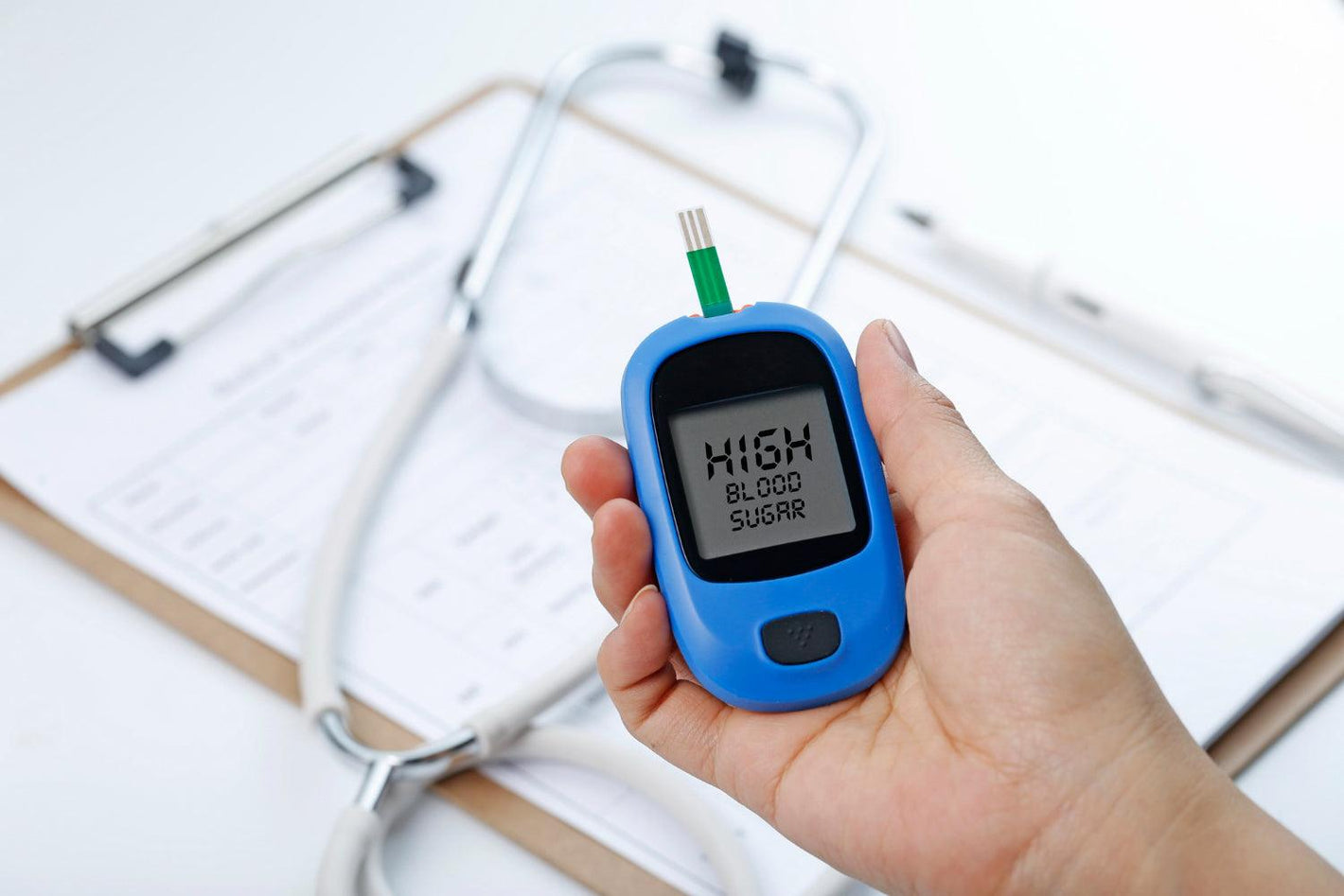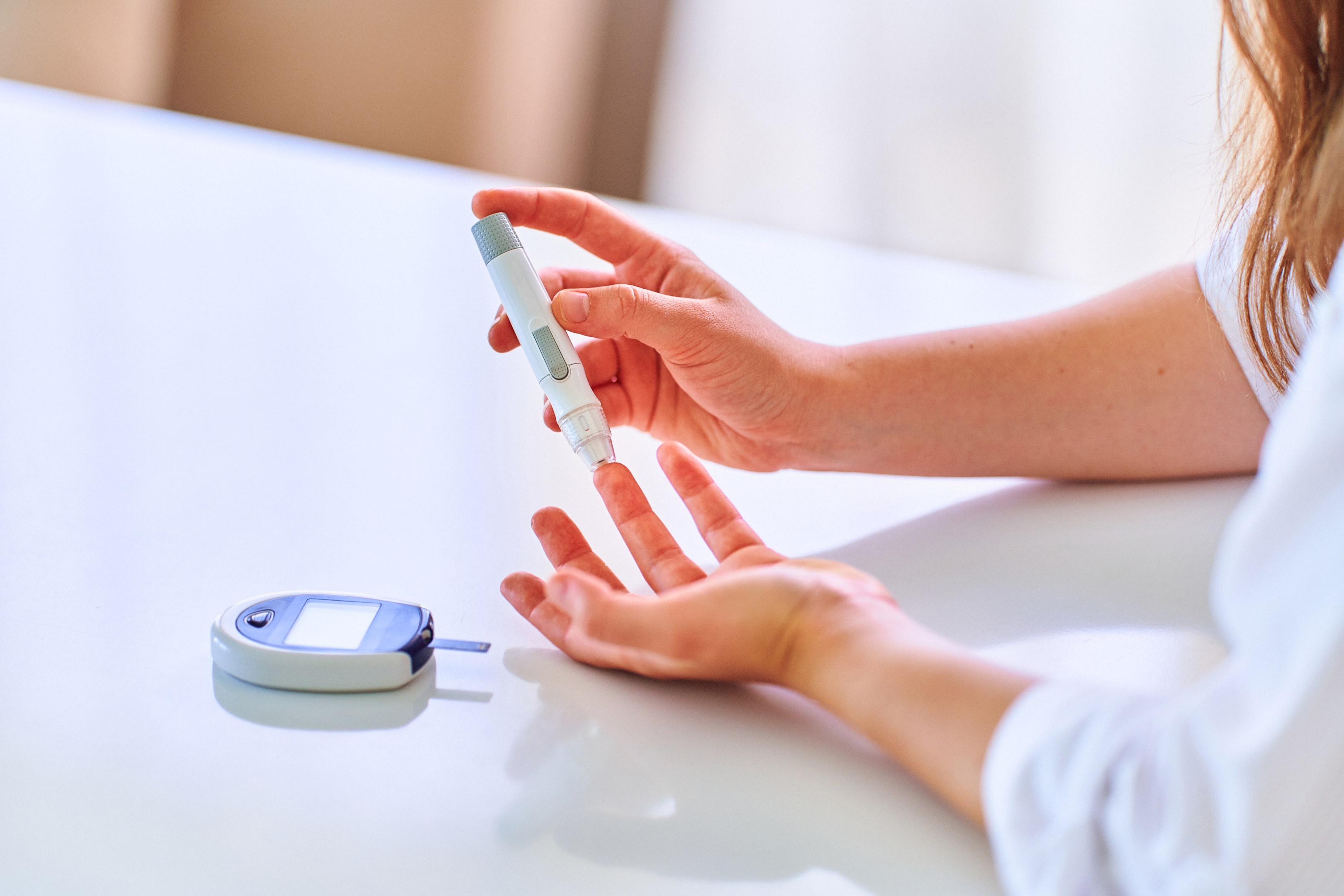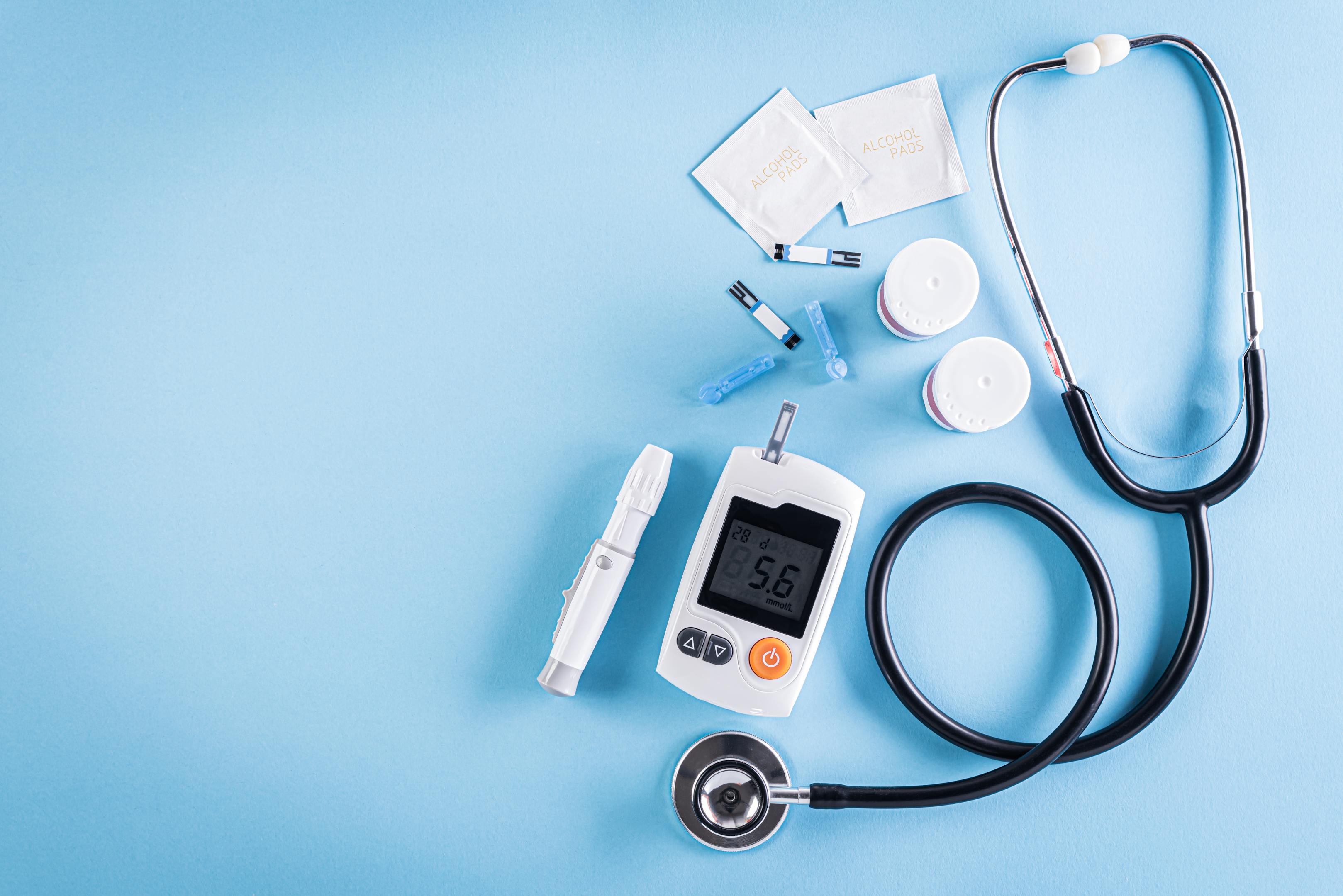Why are my hba1c levels raised?



If you’re living with diabetes, you may have heard of the term “HbA1c” when discussing your blood sugar levels. But what exactly is it, and why are your levels raised?
Let’s break down what HbA1c means and how to keep those levels at a healthy range.
HbA1c stands for haemoglobin A1c, a protein molecule in red blood cells that carries oxygen throughout the body. It also provides important information about your average blood glucose levels over a period of time, typically two to three months. This is because glucose (sugar) attaches itself to haemoglobin in red blood cells, forming glycosylated haemoglobin (or “glycohemoglobin”).
The higher the glycohemoglobin in your bloodstream, the higher your overall HbA1c level will be. This can indicate poor diabetes control—which increases the risk for serious long-term health complications such as heart disease and stroke.
But what causes these levels to become raised? Here are five potential reasons why you may see an increase in your HbA1c results.
One of the most common causes of raised hba1c levels is high blood glucose levels.
If you have consistently high blood sugar due to poor dietary habits or lack of exercise, your body will start to process more glucose than it should. This leads to increased glucose molecules being attached to red blood cells, resulting in a higher hba1c level. It’s important to control your blood sugar levels if you want to avoid elevated hba1c levels.
It’s no secret that stress can have a major impact on our bodies. When it comes to diabetes, this is especially true. Stressful situations can cause our body to release hormones such as cortisol, which can raise our blood sugar levels and therefore raise our HbA1c levels.
To combat this, try to practice self-care activities such as meditation or yoga to reduce stress and regulate your hormones.
Another factor that could be contributing to an increase in your HbA1c is poor nutrition.
Eating too many processed carbs, fast food, sugary snacks, and other unhealthy foods can lead to high blood sugar levels, leading to higher HbA1c readings. To improve your diet, focus on eating more fresh fruits and vegetables while limiting processed foods and added sugars whenever possible.
Physical activity is one of the most important components of managing diabetes healthfully. It helps keep our muscles strong while burning excess glucose in the bloodstream; however, not getting enough exercise can have the opposite effect by causing elevated glucose levels.
In order to keep your glucose under control (and therefore keep your HbA1c low), it’s important to get some form of physical activity every day – even if it’s just a short walk!
Uncontrolled high blood pressure can be another factor when it comes to raised HbA1c readings; this is because hypertension constricts the small vessels that carry oxygenated blood throughout the body - which can lead to increased sugar levels in the bloodstream as well as other complications associated with diabetes such as neuropathy and retinopathy.
In order to keep your blood pressure under control, follow your doctor’s instructions for taking medications or make lifestyle changes such as reducing sodium intake or increasing physical activity if needed.
Certain medications can interfere with the natural production of insulin which could lead to raised hba1c levels. Some medications used for treating depression or anxiety are known for causing an increased risk of diabetes-related health problems due to their effect on insulin production in the body.
It’s important to speak with your doctor about any medication side effects before taking them so that you can make an informed decision about how best to manage your health going forward.

High HbA1c levels can increase your risk for serious health complications, so keeping them as low as possible is essential.
Here are some proven ways that have been shown to help lower HbA1c levels in people with diabetes.
Regular physical activity has been scientifically proven to reduce blood sugar levels and improve insulin sensitivity. Aim for at least 30 minutes of moderate exercise daily—anything from walking to running or biking will do the trick.
Additionally, if you can fit in some weight training two or three times a week, even better! Not only will this help lower your HbA1c levels, but it will also boost your energy and mood and improve your overall quality of life.
The food you eat plays a major role in managing diabetes, so focus on consuming nutrient-dense foods like fruits and vegetables, lean proteins like fish or beans, complex carbohydrates like oats and quinoa, and healthy fats such as olive oil or avocado.
Avoid sugary treats or processed snacks whenever possible—these are not only bad for blood sugar control but can also lead to unhealthy weight gain over time.
And don’t forget about portion control; by limiting calories consumed throughout the day, you can ensure your HbA1c stays within a healthy range without restricting specific food groups entirely.
In addition to getting regular HbA1c tests done by your doctor, take the time each day (or every few days) to monitor your own blood sugar levels at home using a glucometer.
This will give you an idea of how well (or not) certain foods affect your blood glucose level throughout the day and can be used as a guide when deciding what types of meals or snacks to consume on any given day.
It’s also important to note any sudden spikes or drops in blood sugar; this could indicate that something else is going on that needs medical attention from your doctor.
If you’re taking medication for diabetes—such as insulin injections or oral medications—it is essential to take it exactly as your doctor prescribes.
These medications can help manage blood sugar levels more effectively than diet alone, so skipping doses could have serious consequences for long-term health outcomes.
Additionally, many medications have side effects that may worsen over time if taken incorrectly; if this is happening to you, speak with your doctor right away so they can make adjustments accordingly.
Getting enough sleep every night has been linked with improved metabolic function in people with diabetes —which means better control over blood sugar levels!
Try sticking to a consistent schedule where you go to bed at around the same time each night and wake up at approximately the same time each morning; this will help ensure that both body and mind get the rest they need each night without interruption from distractions like phone calls or TV shows late into the night hours.
When it comes to diagnosing diabetes mellitus, a blood test for haemoglobin HBA1c and an oral glucose tolerance test is the typical tools used by medical professionals.
Of course, iron deficiency anaemia can also be present in patients with diabetes, so a comprehensive blood test is essential for accuracy.
Additionally, doctors usually monitor average blood sugar levels in diabetic patients to determine the best plan for treatment and keep an eye out for the onset of kidney disease resulting from untreated diabetes.
By utilizing these tests, along with careful monitoring and evaluation over time, your doctor can diagnose diabetes accurately.
Learn more at Welzo!
Learn what an HBA1c blood test is and what the normal levels of HBA1c are in the UK.










Plus get the inside scoop on our latest content and updates in our monthly newsletter.